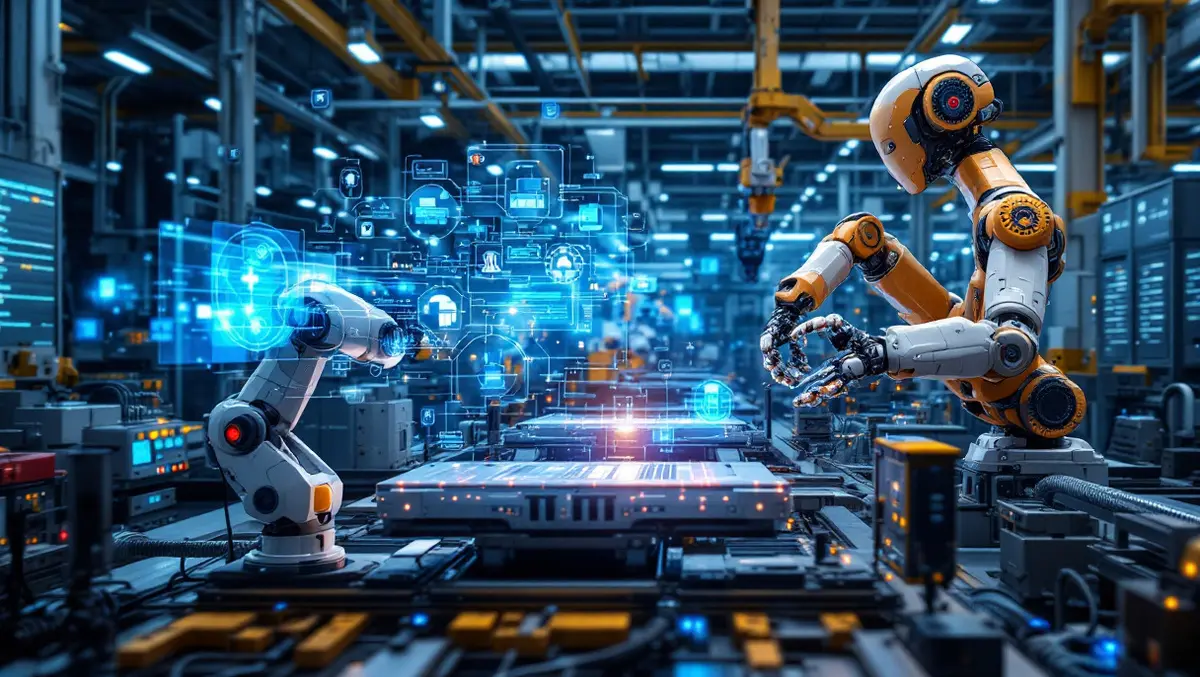
Schneider Electric unveils AI Copilot to enhance manufacturing
Schneider Electric has introduced a new industrial Copilot developed in collaboration with Microsoft. The product aims to increase productivity and efficiency in industrial environments by integrating generative AI with automation solutions.
The industrial Copilot combines Microsoft Azure AI Foundry with Schneider Electric's secure automation platforms, creating an assistant that automates repetitive tasks and facilitates collaborative application development for manufacturing processes. By leveraging generative AI, the Copilot is designed to support workers in coding new production lines more rapidly, simplify operations, and help bridge existing skills gaps.
Industrial sectors have been grappling with a variety of challenges, including global trade uncertainties, supply chain disruptions, regulatory changes, an ageing workforce, limited productivity growth, and increasing sustainability requirements. Schneider Electric's development initiative seeks to address these issues by empowering manufacturers to tackle labour shortages and complex operational demands with AI-enhanced tools.
The Copilot system is positioned as a means for operators and engineers to focus on more complex tasks by relieving them of routine work. It provides real-time guidance and predictive maintenance recommendations, aiming to minimise machine downtime and improve overall decision-making. Integration of data across systems supports the reduction of manual work and operational costs while improving organisational knowledge retention amid workforce changes.
Aurelien LeSant, Chief Technology Officer, Industrial Automation, Schneider Electric, said, "We are at a pivotal moment where industry must achieve unprecedented levels of flexibility and efficiency with Generative AI. Our Copilot, developed in collaboration with Microsoft and leveraging our deep domain expertise, is designed to improve industrial competitiveness by boosting worker confidence, simplifying processes, and bridging skills gaps."
"This innovative solution proactively assists engineers in adding complex functionalities, such as new production lines, with simple steps by pre-generating code, checking for errors, and improving the reuse of existing libraries. It allows engineers and operators to leverage Schneider Electric's industrial Data Sets to bring systems online faster and optimise them for long-term success."
The Copilot will be deployed within Schneider's unified automation environment, EcoStruxure Automation Expert Platform, which is described as the company's open and software-defined automation solution. The platform facilitates integration across hardware and software ecosystems. Real-time data access within the platform is intended to support smoother collaboration between copilots, engineers, and operators, which is critical for providing accurate guidance and timely maintenance solutions.
Among the challenges Schneider Electric aims to address are market volatility, emerging regulations such as bans on certain food dyes in the United States, and restrictions on virgin plastics in packaging in markets like Germany. The company also points to the evolution of cybersecurity needs in industrial operations, moving from traditional "threat and detect" approaches to predictive security models as digital transformation accelerates on factory floors.
Schneider Electric has stated that the industrial Copilot, alongside advancements in robotics and edge technologies, is part of its broader strategy to support manufacturers dealing with data management and digital transformation issues. By providing support for sophisticated automation tasks, the company aims to aid businesses in bringing quality solutions to market more quickly and efficiently, while contributing to the retention and upskilling of their workforce.
The company operates with a workforce of over 150,000 employees and maintains partnerships in over 100 countries, delivering end-to-end industrial IoT solutions, including connected products, automation software, and services. Schneider Electric's stated mission is to enable customers to achieve profitable growth through integrated and digitalised industrial ecosystems.
The announcement reflects Schneider Electric's ongoing focus on developing AI-driven manufacturing systems to support smart industries, resilient infrastructure, and more sustainable operations as the sector adapts to new technological and regulatory realities.


